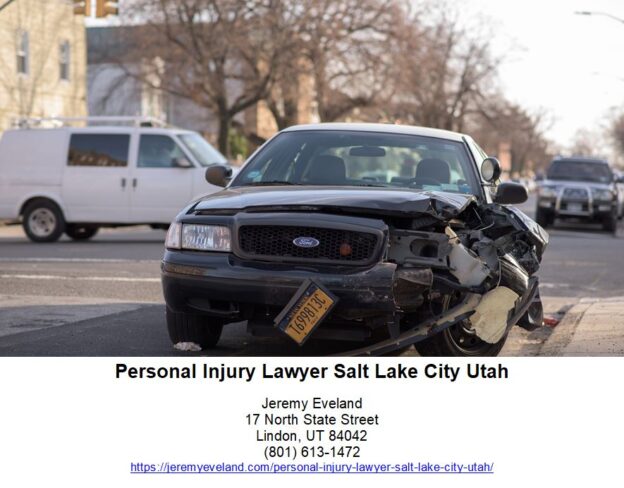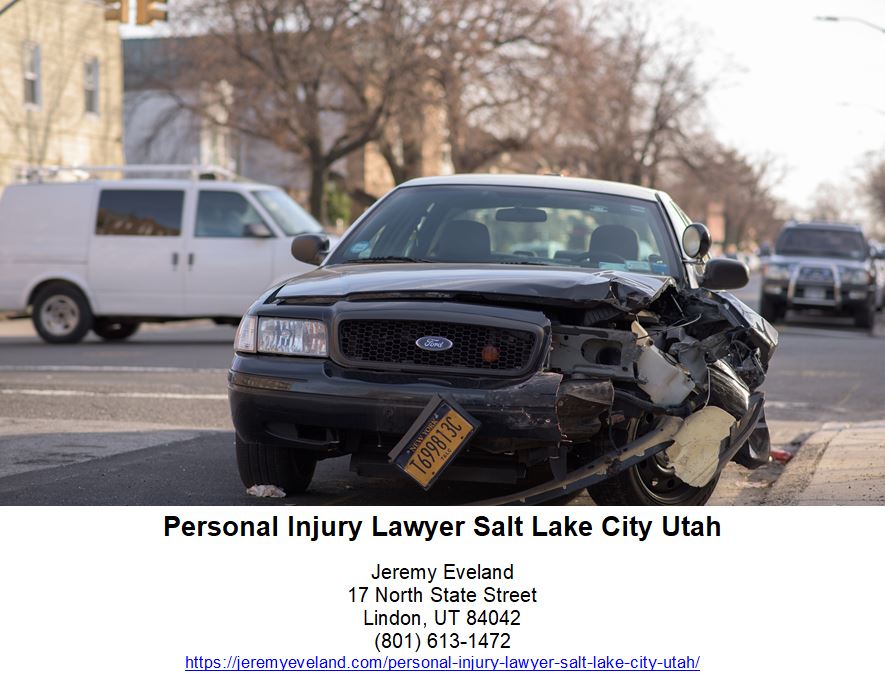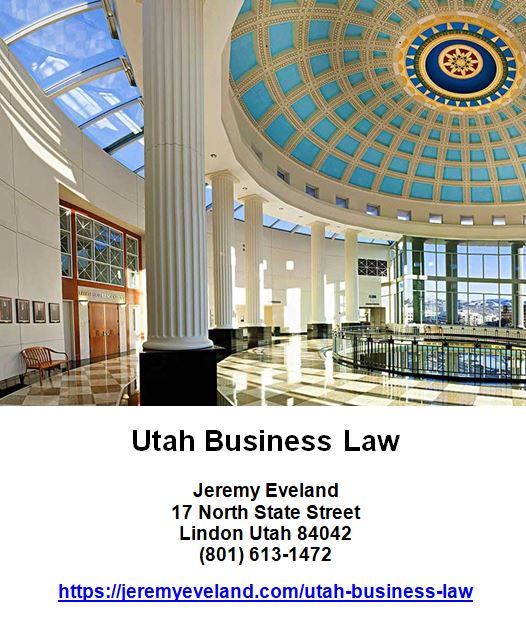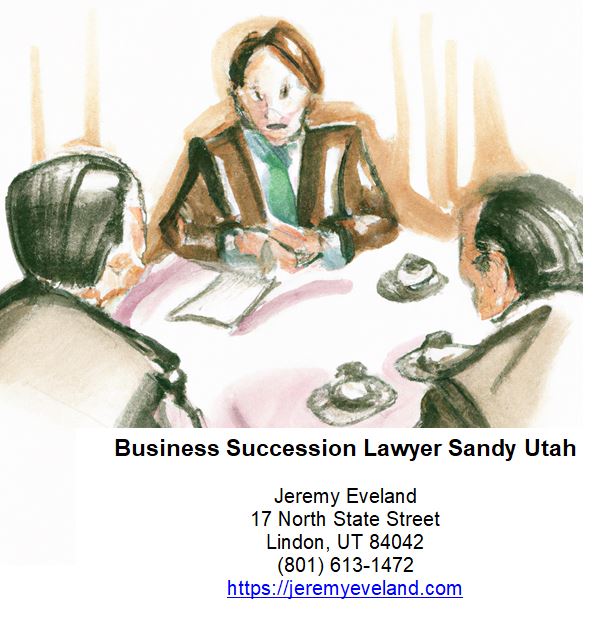Personal Injury Lawyer Salt Lake City Utah
If you’ve been involved in a Car Accident or 18 Wheeler Trucking Accident, then you need to arm yourself with the best Auto Accident Attorney in Utah. Regardless of the zip code you live in, 84604, 84088, 84065 or 84042, you need to speak with a personal injury attorney to help. Failure to act immediately can result in significant financial exposure to claims against you, regardless of whether you were at fault. Remember, failure to act on getting an auto accident attorney in 84604 could have severe financial consequences, regardless of if you were at fault.
Accident Lawyer in Salt Lake
Always primed to assist 24/7, your friendly auto accident attorney in 84604 is known for aggressively representing clients and securing significant financial restitution.
• Free Compensation Consultation to find out how much your case is worth.
• Get your vehicle out of the tow-yard.
• Get reimbursement for your out-of-pocket expenses.
• Get your car repaired ASAP or top replacement valuation.
• Get you the best medical care and your medical expenses paid.
• Get your lost income and wages reimbursed.
• Fight to get you the Maximum Monetary Recovery.
It makes perfect sense to use an attorney with local knowledge in 84604 rather than a car accident lawyer or paralegal appointed by your insurers, who take on cases at a National level rather than locally in the greater Provo area.
Get an Auto Accident Attorney in 84604 in the following circumstances:
1. Serious Injuries. If a serious injury has occurred to anyone.
2. If the auto accident has resulted in tragic death.
3. If it is clear someone is at fault.
4. Construction Zone; if the auto accident happens in a Construction Zone.
5. Police Report. If the Cops have filed a report, you need to hire an auto accident attorney.
6. If Auto Accident Attorneys are already involved, then Lawyer up immediately.
7. Insurance Issues. If anyone involved does not have insurance, you’ll need an auto attorney.
An Auto Accident Attorney in 84604 will also cover the following areas:
• Auto Attorney in Provo
• Auto Accident Attorney in Utah
• Car Wreck Lawyer in Utah
• Vehicle Accident Attorney in Provo
• Auto Compensation Lawyer in Utah
• Best Auto Attorney in Provo
• Truck Accident Attorney in Utah
Auto Accident Attorney For Serious Injuries
Car crashes including hospitalization, broken bones or injuries that are likely to be permanent in nature should always be handled by an auto accident attorney in 84604. Even with no apparent serious injury you must be on guard because no matter how nice someone appears, if they develop an ache or pain over the next few weeks and they can pin it on you, they’ll run squealing to an auto accident attorney and you’ll be caught on the back foot. To stay ahead of the curve in an Auto Accident situation always consult an Auto Accident Attorney in 84604 for every vehicle accident collision, car wreck or truck accident situation.
Auto Accident With Someone Without Insurance
If you’re involved in an accident in 84604 with an uninsured driver, pick up the phone to an Auto Accident Attorney without delay. We cannot and should not feel any sympathy toward a driver who has such little disregard for their own actions as to drive without insurance. You need an auto accident attorney to bring retribution against the perpetrator and to secure the right and just financial compensation in Provo you deserve. It was their choice to drive without insurance. Now they must live with the consequences of their actions as you simply must engage a local auto accident attorney in Provo, West Jordan, Ogden, or Salt Lake City Utah.
Check My Rights After A Vehicle Accident
If you’re unsure of your rights, confused about your insurance policy or find yourself stuck in negotiations with your insurer it’s time for an auto accident attorney to wade into the fray, on your side, representing you and only you in the issue. Sometimes it pays to instruct the best, then stand back and put them into battle for you. Often your insurer may not be acting in good faith and remember your insurer is a corporate entity and out to make a profit for shareholders.
How Much Compensation Will I Get For An Auto Accident?
It depends. Compensation after an Auto Accident is always driven by the strength and experience of your auto attorney combined with the level of damage and personal injury. An insurance adjustor settles the value of your claim. Do not trust the auto insurance adjustor because it’s their job to get the best deal for their own client – the insurance corporations. Do not speak to any insurance adjustor without first consulting an auto accident attorney.
Immediate Steps To Take After An Auto Accident
• Remain silent about who is to blame for the incident
• Switch on the audio recording on your phone or tablet to record the scene
• Do not admit fault
• Do not apologize
• Never sign anything at the scene
• Co Operate with Law enforcement but never answer their questions
• Always give a no comment interview to law enforcement if you think you might be at fault
• Contact an Auto Accident Attorney to help you.
• Call your insurance company, tell them you have a lawyer
• Try to stay calm and relax, everything is going to be alright in the end.
Car Crash State Law
Car accident litigation is governed almost entirely by State law in 84604 and victims must prove the same basic four elements in order to recover compensation.
Duty in Auto Accident Cases in 84604
Drivers in 84604 have a legal obligation to obey the rules of the road and operate their vehicles responsibly. This means not speeding, using blinkers, maintaining control of their vehicle, being in sound physical and mental state, exercising awareness, observing traffic signals, operating headlamps and certainly not drinking alcohol and driving or driving under the influence of drugs.
Breach in Auto Accident Cases in 84604
With the existence of a duty of care in 84604 being widely accepted, you’ll need to start proving with evidence that the opposite driver made a breach of their duty on the road. In 84604, breach of duty can be direct evidence, eyewitness testimony, traffic surveillance video, admission of fault, apology, police reports or forensic evidence such as skid marks, paint smudges or drug and alcohol readings
Causation in Auto Accidents in 84604
After your auto accident attorney in 84604 has proven duty and breach, they also need to prove the opposing party caused your injuries. In 84604 this is usually done via medical testimony and showing the injuries to be consistent with the nature of the car wreck and of course, that these issues did not exist before the accident.
What can I get Compensation for in an Auto Accident?
The top compensation reasons for an Auto Accident Payout are:
• Personal Injury
• Whiplash
• Medical Expenses
• Pain
• Lost Wages
• Therapy Bills
• Psychological Harm and PTSD
• Cost of a Rental Car
• Repair or Replacement of your Vehicle
• Trauma
Should I get an Auto Accident Attorney For A Car Accident?
If you are at fault in a Car Accident then take the following steps immediately:
• Contact the insurance company covering the vehicle you were operating
• Provide all relevant information
• Ask them to confirm the policy limits
• If you suspect the limits may not be enough you could be personally liable
• Contact an Auto Accident Attorney immediately
Many people believe their insurance company is their friend. The voice on the end of the claim hotline can be reassuring but beware and ask yourself, do they really have your best interests at heart? After all, if the car accident wasn’t your fault then your insurance company looks after you right? Not always the case and remember, your insurance company is a business just like any other and that business is looking to make a profit at the end of the year. They are answerable to their stockholders first, and then their clients. In that very order! While your insurer may ‘seem’ to be acting in your best interests they’ll always be cutting costs and saving money. Money that should be unlocked for you as their client, not kept in a reserve for a stockholder’s pension plan. It’s well known in the Auto Accident business that most insurance companies use a secret formula to save them the most amounts of money and giving you the least amount possible. It’s a double-edged sword and it’s unfair to hardworking people across Utah, from all walks of life. If you forgo seeking the assistance of an auto accident attorney in 84604 based upon the fact the accident wasn’t your fault can be a ‘fools’ errand’. Do not for one second believe an Insurance Corporation cares about whose fault an accident is. Their only concern is how little of a payout they can get away with.
What does a Personal Injury Lawyer Do and Why is it Beneficial to Hire One?
A personal injury lawyer is someone who provides legal representation to individuals who have been injured in an accident. Personal injury lawyers work in tort law, which includes negligent acts as well as intentional acts. They pursue compensation for accident victims.
Types of Personal Injury Cases
Personal injury cases often involve the negligent acts of others. This includes automotive accidents, including motorcycle accidents and truck accidents. Personal injury lawyers may also handle other types of transportation accidents, including aviation accidents, bike accidents, mass transportation accidents, boating accidents and pedestrian accidents. They may also handle cases involving premises liability, including negligent security, slip and fall accidents and animal bites and attacks. They may also handle cases involving nursing home abuse and neglect and construction accidents. Medical malpractice cases also fall under the umbrella of personal injury cases.
Types of Compensation
Personal injury plaintiffs may be entitled to compensation for the damages that they have suffered. This includes medical expenses, loss of income, loss of earning capacity, emotional distress, loss of consortium, loss of companionship, loss of enjoyment of life, mental anguish and pain and suffering.
Actions of Personal Injury Lawyers
The specific actions that personal injury lawyers do depends on the type of case, specialty area and where they are in the process of a case. Some of the activities that personal injury lawyers may do and how they benefit your case include:
Investigating Claims
Personal injury lawyers generally work on a contingency fee basis in which they only charge attorney’s fees after they have secured a settlement or jury verdict. Because they often finance a case, they take great care in screening potential clients and evaluating the merits of the case. A personal injury lawyer will not want to take on a case that he or she does not believe will result in a win for the client.
Gathering Evidence
A personal injury may gather evidence to support the plaintiff’s claim. This may involve procuring any police or incident report. He or she may track down witnesses and get witness statements. He or she may take or instruct a photographer to take pictures of the accident report. He or she may also retain evidence for the case, such as property damage, camera footage or other evidence. Evidence may establish liability for who caused the accident and the extent of the damages that the plaintiff suffered. Evidence may include medical reports, medical records, bills, employment documents, employment reports and property damage reports.
Negotiating with Insurance Companies
Most people do not negotiate as part of their typical lives. However, personal injury lawyers are used to negotiating with insurance companies. They can review the policy details and determine the maximum level of compensation that may be available based on the specific circumstances of the case. A personal injury lawyer may also handle all communications with the insurance company and prevent the injury victim from doing anything that may jeopardize his or her claim, such as giving a recorded statement.
Sending Demand Letters
A personal injury lawyer may send a demand letter to an insurance company after thoroughly investigating the claim. This demand letter states the facts of the accident and demands a certain amount of damages for the injury that the defendant caused.
Preparing Pleadings
If the insurance company refuses to offer a fair settlement, the personal injury lawyer may prepare a complaint against the defendant. The complaint sets out the legal arguments regarding why the defendant is responsible for the accident. The complaint also states an amount of damages that the client is seeking. The defendant generally has 30 days from the date of receiving the complaint to prepare an answer to it.
Conducting Discovery
The plaintiff’s lawyer may initiate discovery processes. This includes sending interrogatories to the defendant to ask for certain information. It can also include deposing parties, witnesses and experts.
Representing Clients at Trial
If the case proceeds to trial, a personal injury lawyer provides representation in court. Personal injury lawyers are familiar with court customs and procedures and can ensure that these steps are carefully followed.
Contact a Lawyer for Assistance
It is important to have a personal injury lawyer by your side if you have been injured in an accident caused by someone else. A lawyer can help you level the playing field since the other side will likely have a lawyer on his or her side. He or she can draw on resources like expert witnesses and private investigators when necessary.
Personal Injury Lawyer Salt Lake City Utah Free Consultation
When you need legal help from a Personal Injury Attorney in Salt Lake City Utah, call Jeremy D. Eveland, MBA, JD (801) 613-1472 for a free consultation.
Jeremy Eveland
17 North State Street
Lindon UT 84042
(801) 613-1472
Recent Posts
The Utah Uniform Partnership Act
The 10 Essential Elements of Business Succession Planning
Business Succession Lawyer Taylorsville Utah
Business Succession Lawyer South Jordan Utah
Business Succession Lawyer Lehi Utah
Business Succession Lawyer Millcreek Utah
Business Lawyer Salt Lake City Utah
Business Transaction Lawyer Salt Lake City Utah
Business Succession Lawyer Herriman Utah
What Are The Advantages Of Hiring A Business Lawyer?
Salt Lake City“>Salt Lake City
|
Salt Lake City, Utah
|
|
|---|---|
| City of Salt Lake City[1] | |

Clockwise from top: The skyline in July 2011, Utah State Capitol, TRAX, Union Pacific Depot, the Block U, the City-County Building, and the Salt Lake Temple
|
|
| Nickname:
“The Crossroads of the West”
|
|

Interactive map of Salt Lake City
|
|
| Coordinates: 40°45′39″N 111°53′28″WCoordinates: 40°45′39″N 111°53′28″W | |
| Country | |
| State | |
| County | Salt Lake |
| Platted | 1857[2] |
| Named for | Great Salt Lake |
| Government
|
|
| • Type | Strong Mayor–council |
| • Mayor | Erin Mendenhall (D) |
| Area | |
| • City | 110.81 sq mi (286.99 km2) |
| • Land | 110.34 sq mi (285.77 km2) |
| • Water | 0.47 sq mi (1.22 km2) |
| Elevation
|
4,327 ft (1,288 m) |
| Population | |
| • City | 200,133 |
| • Rank | 122nd in the United States 1st in Utah |
| • Density | 1,797.52/sq mi (701.84/km2) |
| • Urban
|
1,178,533 (US: 41st) |
| • Urban density | 3,923.0/sq mi (1,514.7/km2) |
| • Metro
|
1,257,936 (US: 47th) |
| • CSA
|
2,746,164 (US: 22nd) |
| Demonym | Salt Laker[5] |
| Time zone | UTC−7 (Mountain) |
| • Summer (DST) | UTC−6 |
| ZIP Codes | |
| Area codes | 801, 385 |
| FIPS code | 49-67000[7] |
| GNIS feature ID | 1454997[8] |
| Major airport | Salt Lake City International Airport |
| Website | Salt Lake City Government |
Salt Lake City (often shortened to Salt Lake and abbreviated as SLC) is the capital and most populous city of Utah, United States. It is the seat of Salt Lake County, the most populous county in Utah. With a population of 200,133 in 2020,[10] the city is the core of the Salt Lake City metropolitan area, which had a population of 1,257,936 at the 2020 census. Salt Lake City is further situated within a larger metropolis known as the Salt Lake City–Ogden–Provo Combined Statistical Area, a corridor of contiguous urban and suburban development stretched along a 120-mile (190 km) segment of the Wasatch Front, comprising a population of 2,746,164 (as of 2021 estimates),[11] making it the 22nd largest in the nation. It is also the central core of the larger of only two major urban areas located within the Great Basin (the other being Reno, Nevada).
Salt Lake City was founded July 24, 1847, by early pioneer settlers led by Brigham Young, who were seeking to escape persecution they had experienced while living farther east. The Mormon pioneers, as they would come to be known, entered a semi-arid valley and immediately began planning and building an extensive irrigation network which could feed the population and foster future growth. Salt Lake City’s street grid system is based on a standard compass grid plan, with the southeast corner of Temple Square (the area containing the Salt Lake Temple in downtown Salt Lake City) serving as the origin of the Salt Lake meridian. Owing to its proximity to the Great Salt Lake, the city was originally named Great Salt Lake City. In 1868, the word “Great” was dropped from the city’s name.[12]
Immigration of international members of the Church of Jesus Christ of Latter-day Saints (LDS Church), mining booms, and the construction of the first transcontinental railroad initially brought economic growth, and the city was nicknamed “The Crossroads of the West”. It was traversed by the Lincoln Highway, the first transcontinental highway, in 1913. Two major cross-country freeways, I-15 and I-80, now intersect in the city. The city also has a belt route, I-215.
Salt Lake City has developed a strong tourist industry based primarily on skiing, outdoor recreation, and religious tourism. It hosted the 2002 Winter Olympics and is a candidate city for the 2030 Winter Olympics. It is known for its politically liberal culture, which stands in contrast with the rest of the state’s highly conservative leanings.[13] It is home to a significant LGBT community and hosts the annual Utah Pride Festival.[14] It is the industrial banking center of the United States.[15] Salt Lake City and the surrounding area are also the location of several institutions of higher education including the state’s flagship research school, the University of Utah. Sustained drought in Utah has more recently strained Salt Lake City’s water security and caused the Great Salt Lake level drop to record low levels,[16][17] and has impacted the local and state economy.[18]
[geocentric_weather id=”79414f66-9f4c-4a1a-9eaa-8bbae65c0683″]
[geocentric_about id=”79414f66-9f4c-4a1a-9eaa-8bbae65c0683″]
[geocentric_neighborhoods id=”79414f66-9f4c-4a1a-9eaa-8bbae65c0683″]
[geocentric_thingstodo id=”79414f66-9f4c-4a1a-9eaa-8bbae65c0683″]
[geocentric_busstops id=”79414f66-9f4c-4a1a-9eaa-8bbae65c0683″]
[geocentric_mapembed id=”79414f66-9f4c-4a1a-9eaa-8bbae65c0683″]
[geocentric_drivingdirections id=”79414f66-9f4c-4a1a-9eaa-8bbae65c0683″]
[geocentric_reviews id=”79414f66-9f4c-4a1a-9eaa-8bbae65c0683″]



















